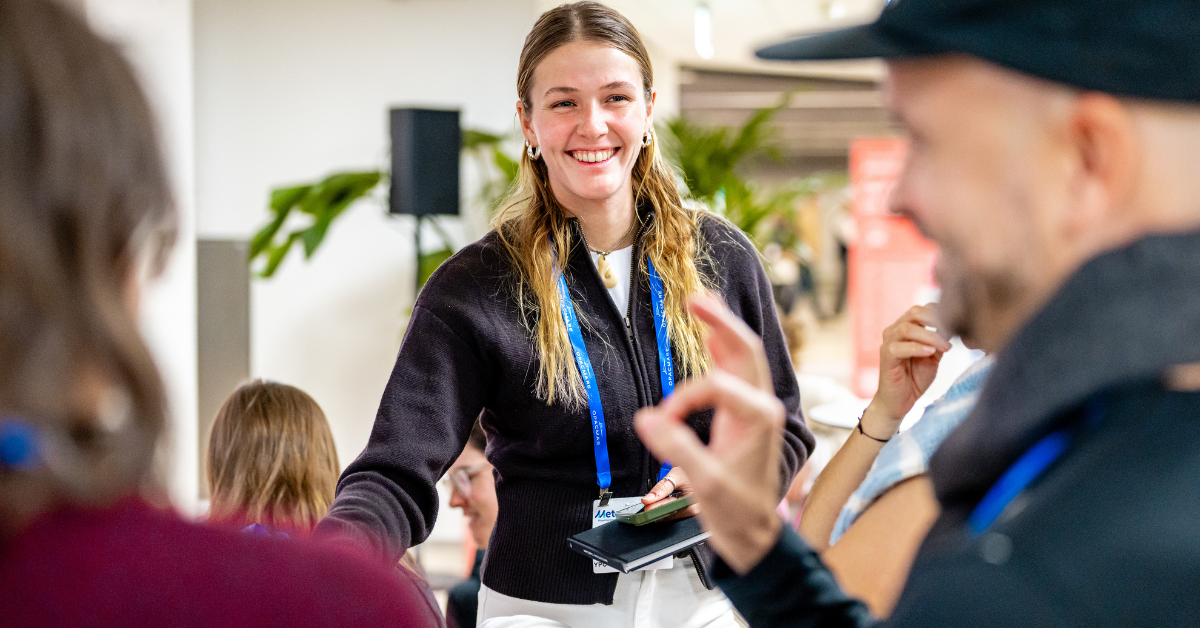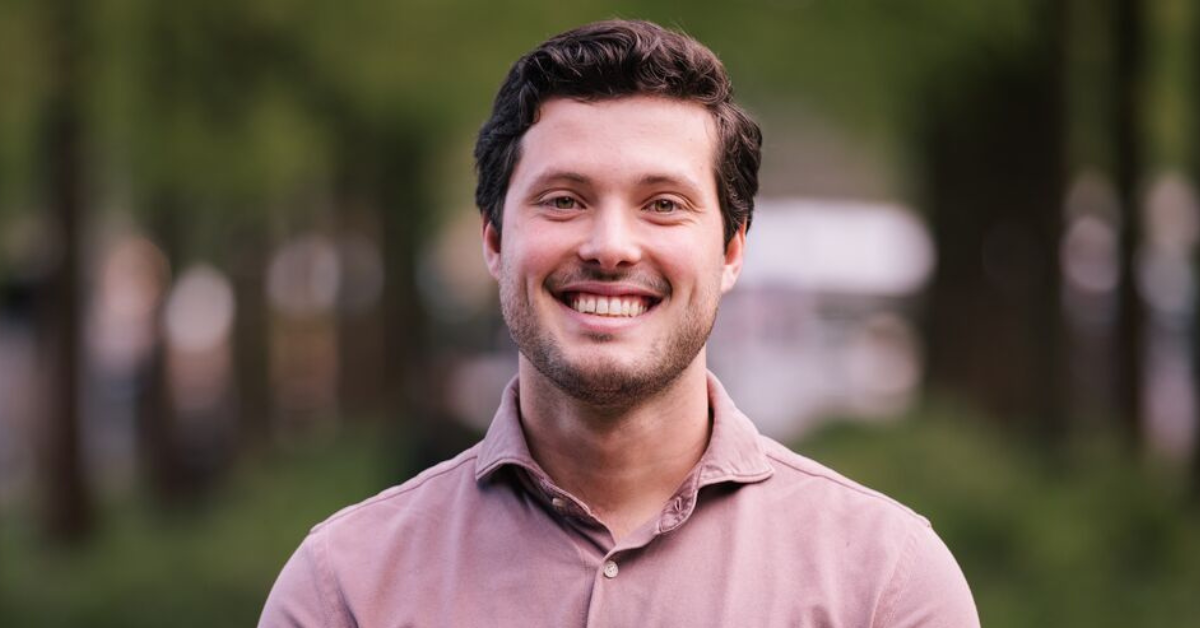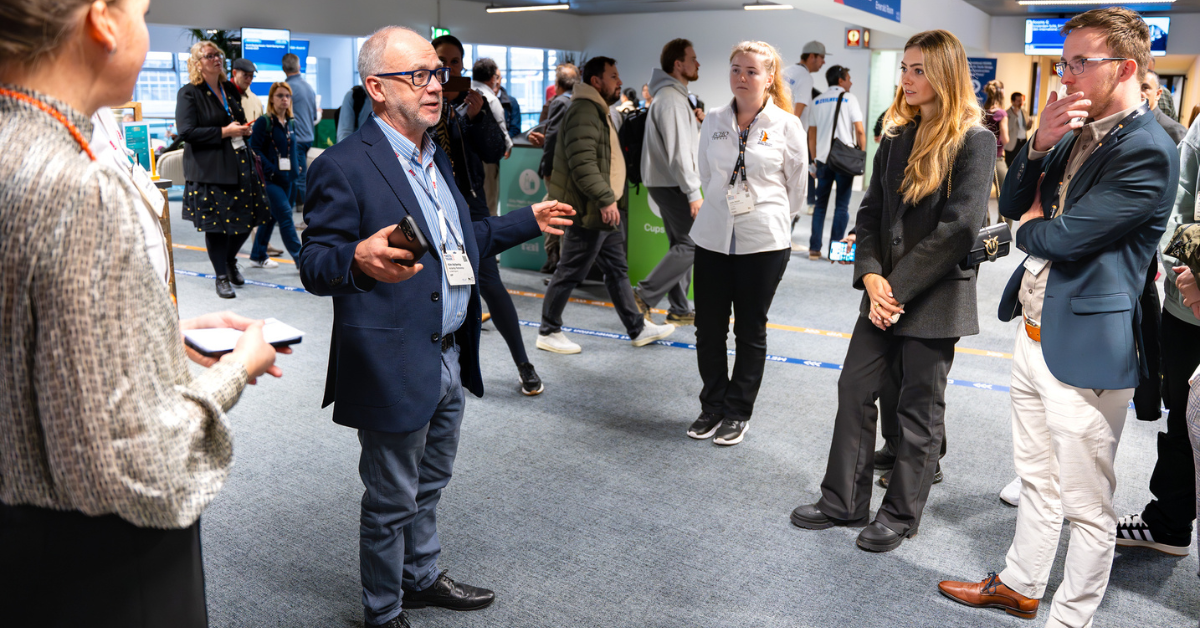‘Stand out for quality, not for gender’
 Hans Buitelaar
Hans Buitelaar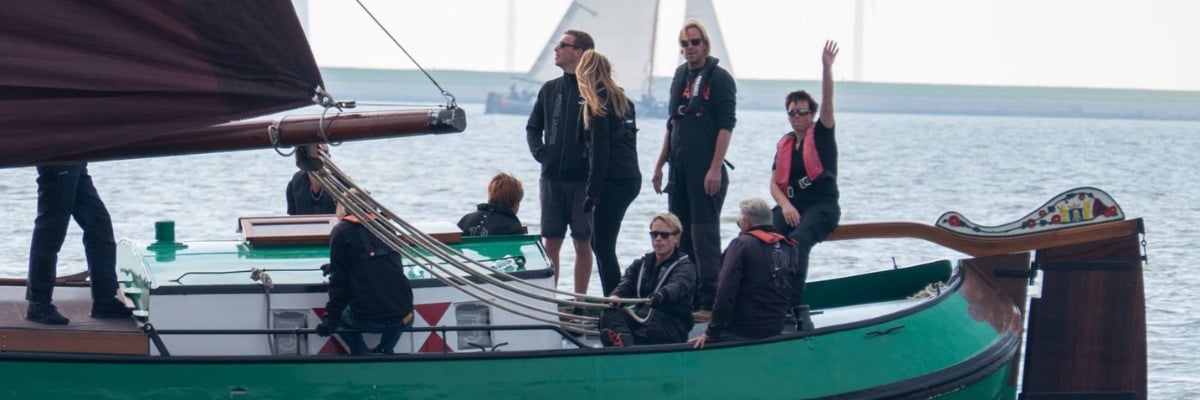
Entrepreneurs in yachting materialise equality
Proud of their achievements as entrepreneurs, Wies Hokwerda of Boarnstream Yachting and Froukje Osinga of Multiship Holland are reluctant to underline the fact that they are women in the male-dominated yachting industry. Both directors of well-established yards in the Netherlands express that it does not make a difference to them if they work with women or with men. However, they recognise that this non-discriminatory attitude only works in an industry and society that is ready for it. Hokwerda: “I do realise that the fact that we live in the North-West of Europe, is one of the factors that opened the opportunity for me to become the managing director of an acclaimed motor yacht yard. I have not been opposed to do this because I am a woman.”
Pragmatism
The stories they tell are about being involved in yachting since childhood, gaining experience in different industries and then devoting to excellence in their businesses: the development and construction of luxury motor yachts for Hokwerda and running a yard for new builds and repair for Osinga. “If we decide to work with suppliers or other business partners, it is not an issue if the manager there is a woman or a man. We just consider whether they run a good company that can deliver the products and services we need,” Osinga expresses pragmatically.
Barge racing
“As a teenager, I was sailing with my father Sieb in the traditional sailing barge ‘Jonge Jasper’,” Osinga explains her close ties with yachting. ‘Skûtsjes’, old Dutch barges for inland transport are fanatically sailed in regattas honouring the hard labour of the skippering families that made their livelihood with transport of wood, grain or other cargo. Especially in the Northern province of Friesland, this tradition is cherished. “I was crew aboard the Skûtsje that my father skippered, We were doing quite good. By the year 2011, we had won the overall victory in the leading A-class of the IFKS championship five times in a row. After all this success, my father said to me: now it’s your turn. So from the 2012 season, I took over the helm as a skipper on a Skûtsje. I am not the first woman to skipper one of these boats, but I was the first to follow up her father as a skipper and today I am the only female skipper in the 65-boat fleet. From the moment I started as a skipper, reactions in throughout the fleet have been positive overall. You must realise that there was some pressure to maintain the success of ‘Jonge Jasper’ after winning the championship five times. As a new skipper, the crew and me had to start in the lower ranking C-class in the first year. We did win the championship that yeear and could proceed in the B-class. Presently, we have emerged into the A-class again and we have been close to winning the championship. We have a crew of 14, all working hard to sail as fast as possible.” The ‘Jonge Jasper’ is 19.92 meters long, really narrow with her 3,56 meter beam while the steel barge has a 34 tonnes displacement.
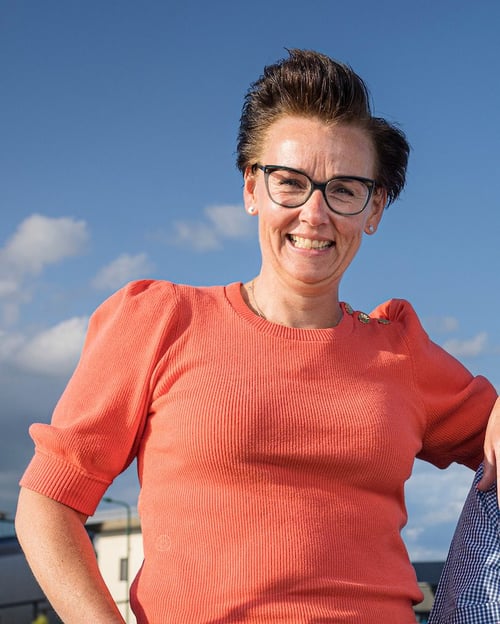
Froukje Osinga
Stand ground
Professionally, Osinga worked as a chef in several restaurants. Later. She took on took on a job a purchaser in a company that builds heavy machinery for the offshore industry. In the Skûtsje sailing community, she met Wiecher Kocken, who had established the shipyard for new builds and repair of yachts Multiship Holland in the harbour city of Harlingen in 2012. With this yard operating for some years already, Osinga started working there as an employee in 2015. A few years on the job, she got the opportunity to acquire shared ownership of the yard with Kocken and is now running operations together with him. “My job is purchase: approaching suppliers and negotiating business agreements, together with maintaining contacts and communications with our clients. I discuss the work we do with the yacht owners that come to us to have their boats built or refitted, explain how we do it and how many work we need to put into such projects to make them successful. Yes, the yacht owners are often men. This does not make a difference for me. Indeed, the owners, both men and women can be tough negotiators. It is necessary for me to ‘mannetje staan’ – an expression in Dutch to say ‘to stand your ground’ or ‘to man up’.
Marketing
Likewise, Hokwerda grew up surrounded by yachts. Her father Henk founded the yard Boarnstream Yachting in 1964. “As a kid, I played on the yard ground. As a teenager, I had holiday jobs cleaning boats and helping out at boat shows.” Despite being one of the daughters in a yacht building family, Wies was not preparing to take over the yard. “As a student in Economics, I was learning about trade like all the other students with an open eye towards all the possible careers that might await me. I have always been free to choose my own path.” Hokwerda realised that designing yachts, co-ordinating production and selling the boats in a family company is a very beautiful way to achieve fulfilment in a career. Yet, she opted for another job first. As a production manager at a marketing company in the food sector, she could apply her ideas about product placement. “After a few years, I was ready doing that. In this company, there was no chance for me to become a partner or take over the business. I felt that I could realise more of my ambitions by being an entrepreneur. At that point, I did come up with a new business plan for the family company. It consists of a yard with construction halls plus a marina together with importing Marex yachts from Scandinavia. Until that time, the clients for the yachts we build, often came to the yard production halls. This was a place with workers handling steel, welding, installing engines and tanks. Moving the yacht sales to the marina, I reasoned, would invite customers into the leisure environment that they were looking to enter with the yachts that they were looking to purchase. I wanted to create an environment that would ensure that a yacht would be sold as soon as the buyer would enter the sales office. So I made this business plan and presented it to the family. They agreed and asked me to make the new business plan become reality. I wanted to further professionalise the operations at Boarnstream Yachting. Today, we build custom yachts to client specification. We present standard models, but all of the equipment, interior lining, engines and finish can be adapted to client demand. We want to deliver top-end quality. In this way, we are able to deliver about ten yacht annually. We have enough contracts to do that and we would not increase our production: this is just a fine balance of numbers of yachts and quality achieved.” Being a woman does not influence the way she works. Hokwerda does not run the yard in a dress and on high heels, but is not a harnessed feminist either. “Sometimes clients from Germany call and ask for ‘Herr Hokwerda’. As I explain that the yard is run by ‘Frau Hokwerda’ they accept that soon enough. I have never asked the men in the 25 people workforce how they feel about a woman leading a yard. That is just the way it is. I try to be a good employer.”
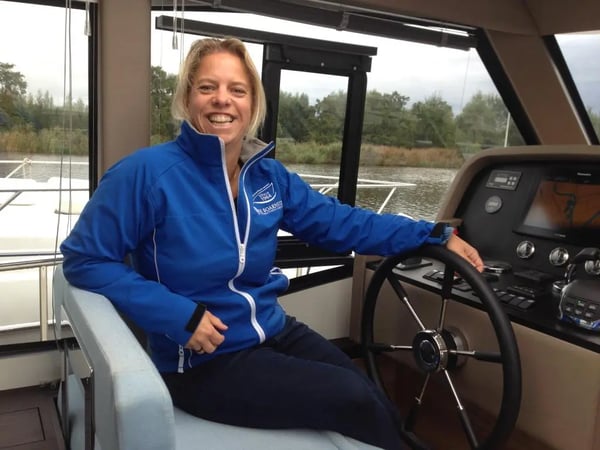
Wies Hokwerda
Development
Both Osinga and Hokwerda are mothers of two children. Just like they could find their way of building a career for themselves, they do not intend to push their kids towards the yachting industry. They manage to run their families besides guiding their companies. The women agree that gender diversity can be a positive development in the industry. Still, their down-to-earth approach prevails of not making gender an issue at all. The yachting world might be ready to encompass feminine qualities in the workflow and value the people that bring these qualities. Then, indeed, gender will be no issue.
